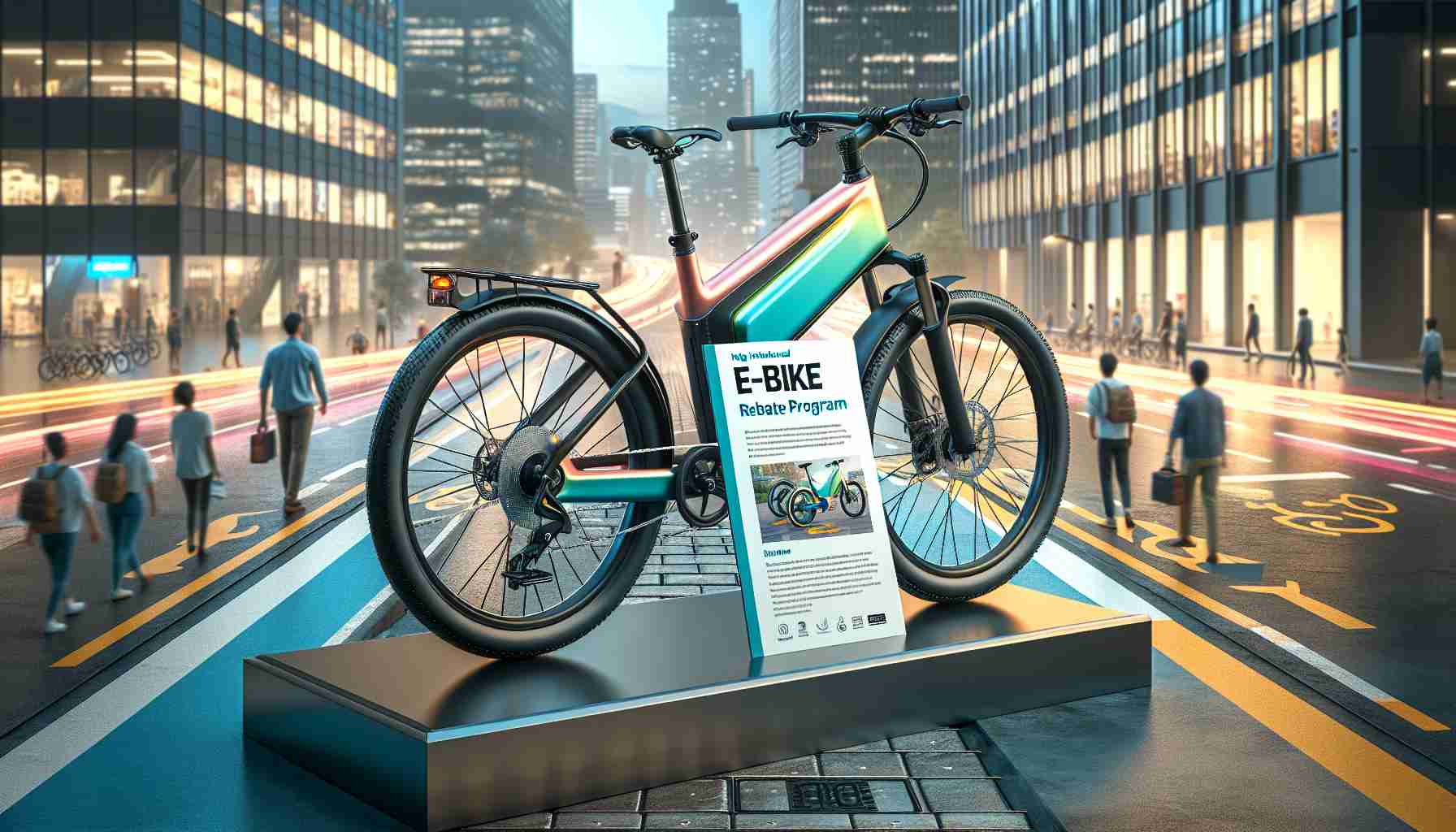A new e-bike rebate program has been introduced in the Cape and Martha’s Vineyard to encourage environmentally-friendly transportation and provide equitable access to mobility options. With funding amounting to $341,157 from the Massachusetts Clean Energy Center, the program aims to cover 75% to 90% of the costs associated with purchasing an e-bike for income-eligible residents.
The initiative, developed by Cape Light Compact, an energy services organization operating in the area, has already seen success in its initial phase. However, in response to feedback from customers who still found it challenging to afford the remaining cost even with a 75% rebate, the program has been modified to offer a tiered approach. This updated design ensures that those who qualify for the rebate can access e-bikes at a higher subsidized rate of up to 90%.
The primary objective of the program is to facilitate reliable transportation for individuals who would otherwise lack access while promoting environmentally-friendly alternatives to car usage. Mariel Marchand, a staff member from Cape Light Compact overseeing the initiative, emphasizes the program’s intention to replace car trips with bike trips whenever possible. By doing so, it not only contributes to a greener environment but also enables customers who cannot afford to purchase a car to run errands, commute to work, and potentially secure employment opportunities that were previously inaccessible.
To be eligible for the e-bike rebate, interested individuals must complete an application form on the Cape Light Compact website. However, given the limited availability of approximately 165 vouchers, it is essential to apply early. Once granted a voucher, residents can redeem their rebate at qualified bike shops such as Dennis Cycle, Bike Zone Yarmouth, or Buzzards Bay Bikes.
Local bike shop owners, like Jim Ballantyne from Buzzards Bay Bikes, applaud the program for its contribution to increasing cycling participation and providing transportation options to individuals who may not have had access otherwise. The pedal-assisted e-bikes offered through the program enhance riders’ capabilities, similar to power steering in a car, making cycling easier and more enjoyable for individuals of various age groups.
The introduction of this e-bike rebate program not only supports sustainable transportation and reduces carbon emissions but also recognizes the importance of equitable access to transportation options. By encouraging the adoption of e-bikes, Cape and Martha’s Vineyard are taking a step towards a greener and more accessible future.
The e-bike industry has been experiencing significant growth in recent years due to various factors such as increased awareness of environmental issues, rising fuel costs, and the desire for alternative transportation options. According to market research, the global e-bike market is projected to reach $40 billion by 2025, with a compound annual growth rate of over 9%.
One of the key drivers of this growth is the increasing adoption of e-bikes for commuting purposes. As cities become more congested and parking becomes scarcer, many people are turning to e-bikes as a convenient and cost-effective mode of transportation. E-bikes offer the benefits of traditional bikes, such as exercise and reduced carbon emissions, but with the added advantage of pedal assistance, which makes riding long distances or uphill much easier.
However, despite the growing popularity of e-bikes, cost remains a significant barrier for many potential buyers. A high-quality e-bike can cost anywhere from $1,000 to $10,000, depending on the model and features. This is where rebate programs like the one introduced in Cape and Martha’s Vineyard play a crucial role. By subsidizing a significant portion of the cost, these programs make e-bikes more affordable and accessible to a wider range of consumers.
One of the challenges faced by the e-bike industry is the lack of infrastructure and regulations specifically tailored to e-bikes. Many cities are still in the process of developing bike lanes, charging stations, and other facilities to accommodate the growing number of e-bike riders. Additionally, there is a need for clear guidelines regarding where e-bikes are allowed to be ridden, as they are often subject to the same regulations as bicycles or motorized vehicles, depending on the jurisdiction.
To overcome these challenges and make e-bikes a mainstream mode of transportation, governments and industry stakeholders need to collaborate and invest in infrastructure development, education campaigns, and policy frameworks that support the integration of e-bikes into existing transportation systems. This will not only benefit individual riders but also contribute to reducing traffic congestion, improving air quality, and promoting a healthier and more sustainable way of living.
For more information on the e-bike industry and related topics, you can visit reputable sources such as Bike Europe or eBicycles. These websites provide insights into the latest trends, market forecasts, and industry developments in the e-bike sector.






















